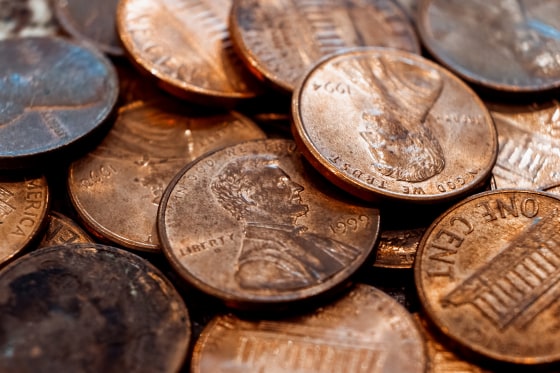The penny dropped.
The U.S. Mint struck the final 1-cent coin that will be used as legal tender on Wednesday, six months after the Trump administration announced that it would stop producing pennies because the cost of making them is almost four times more than they’re worth.
From now on, the only new pennies the Mint releases will be collector versions that aren't currency and will be produced "in limited quantities," the agency said in a statement.
Treasury Secretary Scott Bessent and Treasurer Brandon Beach were at the U.S. Mint in Philadelphia when the coin press punched out the historic final penny, the agency confirmed.
There are still an estimated 250 billion pennies in circulation, the American Bankers Association said in October.
But back in February, President Donald Trump said it made no fiscal sense to keep producing cents.
“For far too long the United States has minted pennies which literally cost us more than 2 cents,” Trump wrote in an online post. “This is so wasteful! I have instructed my Secretary of the U.S. Treasury to stop producing new pennies.”
Officially known as the cent, the first penny was struck in 1787 and had a sundial design that was dreamt up by Benjamin Franklin, one of the Founding Fathers.
The U.S. Mint took over penny production in 1793, a year after Congress passed the Coinage Act.
Like its predecessor, this penny was also made of copper. But it was slightly bigger and came to be known as the “Flowing Hair” cent because it had a woman representing liberty on one side and 15 chain links on the other side.
It wasn’t until 1909 that the woman was replaced by President Abraham Lincoln in profile to mark what would have been his 100th birthday.
The Mint said that ending penny production will save taxpayers about $56 million annually. And it will continue to be legal tender for as long as its around.
That said, the penny is not worth much. You can’t even buy penny candy, which made its debut in 1896, with just a penny.
But its cultural value is incalculable.
Stingy people still “pinch pennies.” An unexpected windfall is still referred to as “pennies from heaven.” And a fiscal planner who is “penny wise and pound foolish” should be avoided.
But after Wednesday, the penny once saved and cherished will be the penny spurned, rather than earned.

